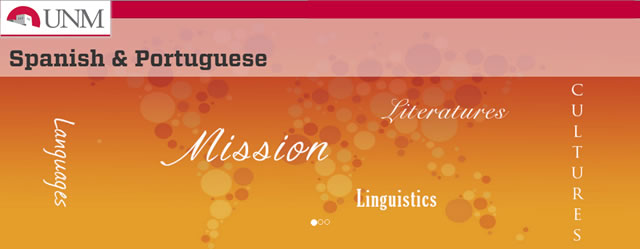
Spanish and Portuguese ETDs
Publication Date
Summer 5-23-2017
Abstract
This dissertation traces the cultural memory of three magical/religious women of the colonial period: Sor Juana Inés de la Cruz, La Condesa de Malibrán and La Falsa Teresa de Jesús. It studies these icons specifically in three different discourses that construct cultural identities in Mexico: colonial discourse (XVI-XVII Centuries), the discourse of national consolidation (XIX-XX centuries) and postcolonial discourse (XX-XIX Centuries). First I describe how the narratives of the colonial period and of national consolidation employ an official lens to place magical/religious women within traditional gender roles. Then I delineate how historical novels in the 21st century employ a postcolonial lens to rewrite the colonial and foundational narratives and thus create empowered new icons of representation in cultural memory. My primary sources for studying the official discourse of the colonial period and national consolidation are colonial archives and legends; and my primary sources for studying postcolonial discourses are three historical novels: Las Mujeres de la tormenta (2012), Ángeles del abismo (2004), Yo la peor (2009), all of which revisit the colonial 16th and 17th century. This project is a multidisciplinary study that employs historical, social and literary approaches to understand the importance of recognizing and comprehending Latin America’s colonial past to interpret the present.
Degree Name
Spanish & Portuguese (PhD)
Level of Degree
Doctoral
Department Name
Spanish and Portuguese
First Committee Member (Chair)
Kathryn J. McKnight
Second Committee Member
Anna Nogar
Third Committee Member
Mary Quinn
Fourth Committee Member
Oswaldo Estrada
Language
Spanish
Keywords
Cultural Memory, Sor Juana Inés de la Cruz, Teresa Romero, la Condesa de Malibrán, Yo la peor, Las mujeres de la tormenta, Ángeles del abismo
Document Type
Dissertation
Recommended Citation
Hernandez Gonzalez, Ana Gabriela 5059749397. "DIVERSAS DE SÍ, ENTRE EL HOY Y EL AYER: REMEMORIA DE TRES ÍCONOS FEMENINOS ESPIRITUALES, LA CONDESA DE MALIBRÁN, SOR JUANA INÉS DE LA CRUZ Y LA FALSA TERESA DE JESÚS." (2017). https://digitalrepository.unm.edu/span_etds/79
Included in
Cultural History Commons, Latin American History Commons, Latin American Languages and Societies Commons, Latin American Literature Commons, Latina/o Studies Commons, Other Religion Commons, Women's History Commons, Women's Studies Commons
